
Kansenshi: The Heartbeat of Ndola
Kansenshi, located in the vibrant city of Ndola, Zambia, offers an enriching blend of local culture, history, and modern amenities. Known as one of the most dynamic neighborhoods in Ndola, Kansenshi is a must-visit for tourists eager to experience the authentic Zambian lifestyle. As you stroll through the streets of Kansenshi, you'll be captivated by the friendly locals, bustling markets, and eclectic mix of modern and traditional architecture. The neighborhood is home to a variety of shops, restaurants, and cafes that provide a taste of local cuisine and hospitality. Don't miss the chance to try traditional Zambian dishes like nshima and chibwabwa at one of the local eateries. Kansenshi is also a hub for cultural activities and history. The area boasts several historical landmarks and museums that showcase the rich heritage of Ndola and Zambia as a whole. Whether you're interested in exploring the local art scene or learning about the region's history, Kansenshi has something for everyone. For nature lovers, Kansenshi offers beautiful parks and green spaces where you can relax and take in the scenic views. The neighborhood's commitment to preserving its natural beauty makes it a great spot for leisurely walks and picnics. With its lively atmosphere and diverse attractions, Kansenshi is a neighborhood that promises a memorable experience for all visitors.
Local tips in Kansenshi
- Visit the local markets early in the morning for the freshest produce and unique souvenirs.
- Try traditional Zambian dishes at local restaurants for an authentic culinary experience.
- Explore the historical landmarks and museums to learn about the rich heritage of Ndola.
- Take a leisurely walk through Kansenshi's parks and green spaces to enjoy the natural beauty.
- Interact with the friendly locals for insider tips and a deeper understanding of the neighborhood.
Kansenshi: The Heartbeat of Ndola
Kansenshi, located in the vibrant city of Ndola, Zambia, offers an enriching blend of local culture, history, and modern amenities. Known as one of the most dynamic neighborhoods in Ndola, Kansenshi is a must-visit for tourists eager to experience the authentic Zambian lifestyle. As you stroll through the streets of Kansenshi, you'll be captivated by the friendly locals, bustling markets, and eclectic mix of modern and traditional architecture. The neighborhood is home to a variety of shops, restaurants, and cafes that provide a taste of local cuisine and hospitality. Don't miss the chance to try traditional Zambian dishes like nshima and chibwabwa at one of the local eateries. Kansenshi is also a hub for cultural activities and history. The area boasts several historical landmarks and museums that showcase the rich heritage of Ndola and Zambia as a whole. Whether you're interested in exploring the local art scene or learning about the region's history, Kansenshi has something for everyone. For nature lovers, Kansenshi offers beautiful parks and green spaces where you can relax and take in the scenic views. The neighborhood's commitment to preserving its natural beauty makes it a great spot for leisurely walks and picnics. With its lively atmosphere and diverse attractions, Kansenshi is a neighborhood that promises a memorable experience for all visitors.
Iconic landmarks you can’t miss
Z-Mart Kansenji Mall
Discover Ndola's vibrant shopping scene at Z-Mart Kansenji Mall, where retail therapy meets local culture and delightful dining options.
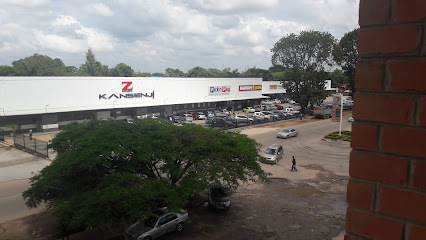
Premium Plaza
Discover comfort and convenience at Premium Plaza, your ideal base for exploring the vibrant culture of Ndola, Zambia.
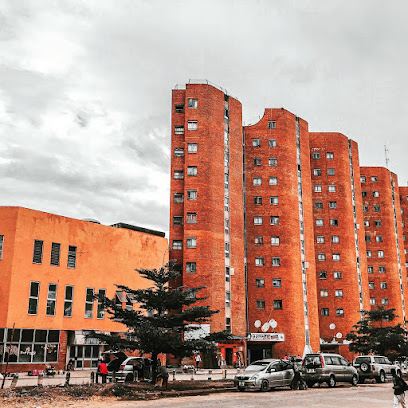
Copperbelt Museum
Explore the Copperbelt Museum in Ndola, a cultural hub showcasing Zambia's mining heritage, local traditions, and diverse wildlife.
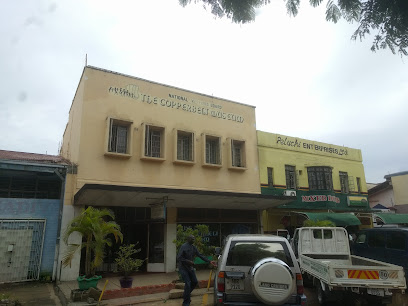
Muuka Garden And Lodge
Discover serenity and local flavors at Muuka Garden And Lodge, a tranquil retreat in Ndola, Zambia, perfect for tourists seeking relaxation and great food.
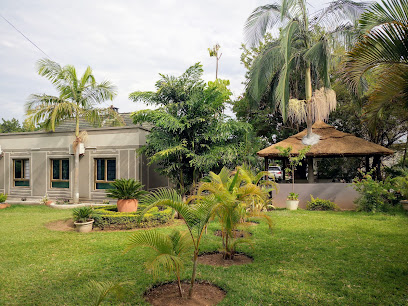
Dola Hill Lying Dragon Game Centre
Experience the thrill of family fun at Dola Hill Lying Dragon Game Centre, Ndola’s top destination for children’s amusement and excitement.
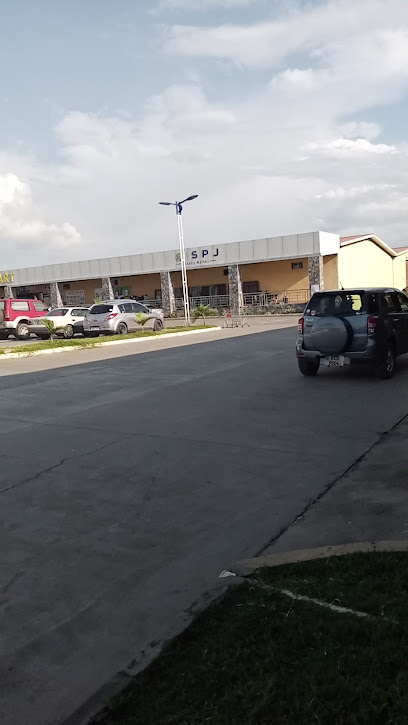
Kumbali Lodge
Discover tranquility at Kumbali Lodge in Ndola, where comfort meets nature for an unforgettable Zambian escape.
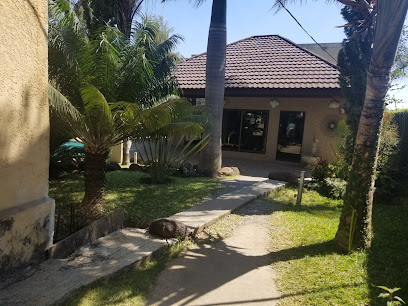
Kansenshi Secondary School
Explore the educational heritage and herbal traditions at Kansenshi Secondary School in Ndola, a unique experience for every traveler.
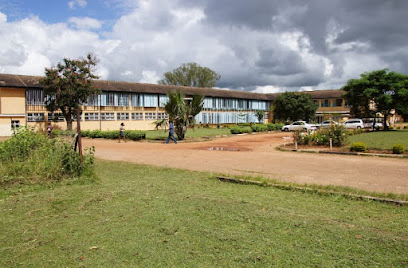
The Oak Garden
Discover the serene beauty of The Oak Garden in Ndola, a lush escape perfect for relaxation, family fun, and enjoying nature's splendor.
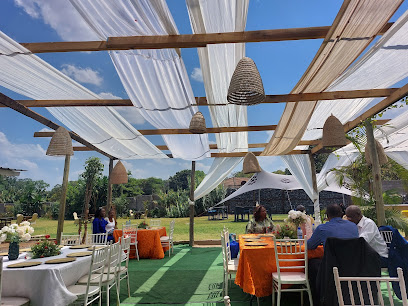
Monument
Explore Ndola's Monument, a historical landmark showcasing Zambia's rich heritage and captivating stories, perfect for cultural enthusiasts and travelers alike.
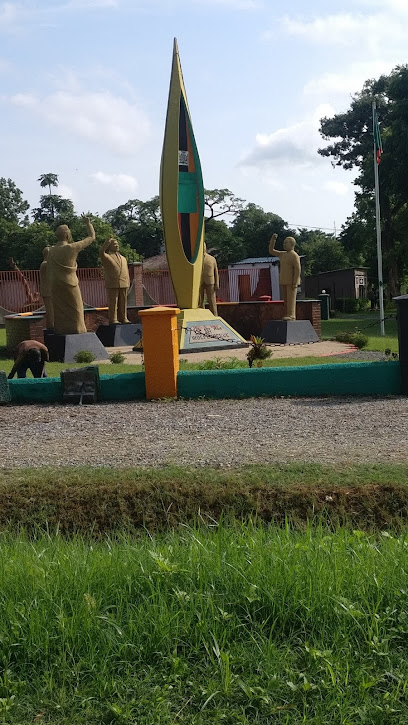
The Big Tree
Discover the ancient wonder of The Big Tree in Ndola, a historical landmark offering a glimpse into nature's grandeur and local heritage.
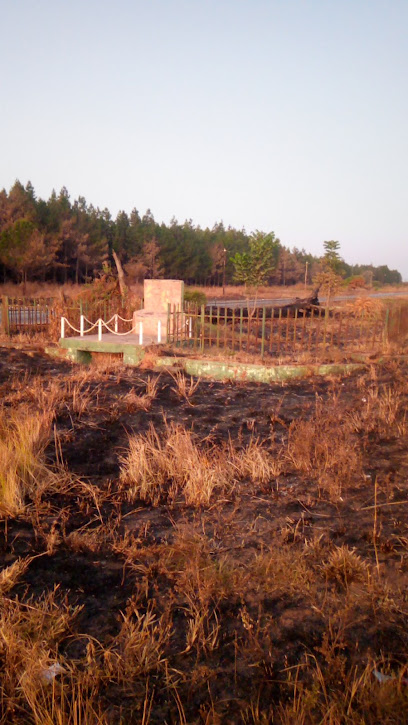
Kansenshi Cemetery
Discover the peaceful serenity of Kansenshi Cemetery in Ndola, a tranquil spot rich in history and cultural significance.
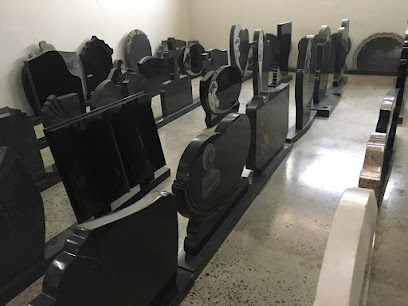
Crown of Life Church
Explore spiritual growth and community connection at Crown of Life Church in Ndola, a welcoming haven for tourists seeking solace and culture.
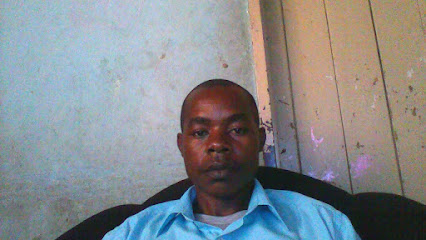
Essential places to dine
Angelina's Bistro, Bar & Pizzeria
Savor the flavors of Italy and local cuisine at Angelina's Bistro, Bar & Pizzeria in Ndola – a culinary gem for every traveler.
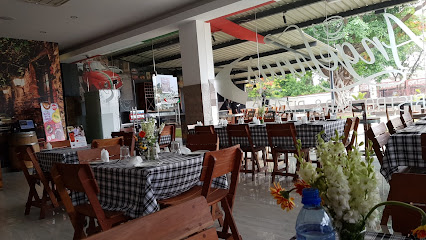
Nawab's Kitchen
Discover authentic Indian cuisine at Nawab's Kitchen in Ndola—where rich flavors meet warm hospitality for an unforgettable dining experience.
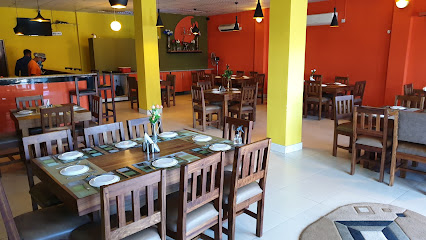
Hungry Lion Kansenshi
Experience the best fried chicken at Hungry Lion Kansenshi – where flavor meets affordability in Ndola's bustling mall.
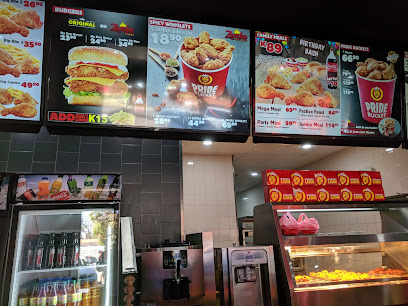
Papillons Grill House
Experience mouthwatering grilled delicacies at Papillons Grill House in Ndola – where flavors meet hospitality.
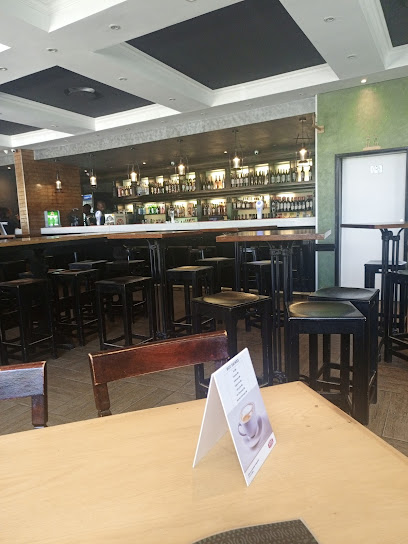
Harry's Café
Discover the culinary delights at Harry's Café in Ndola – where local flavors meet global cuisine in a cozy setting.
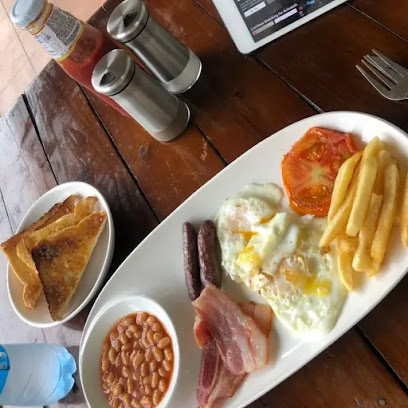
Chandi Foods & Events
Discover Chandi Foods & Events in Ndola: A delightful restaurant blending local flavors with international cuisine for an unforgettable dining experience.
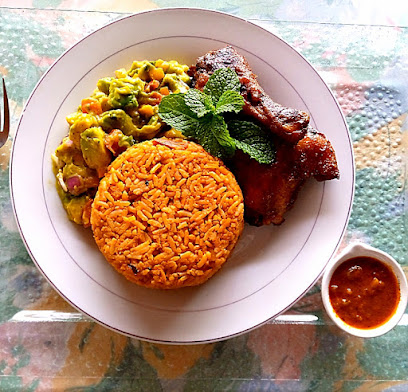
House of Meats
Experience authentic Zambian flavors at House of Meats in Ndola – where every bite tells a story!
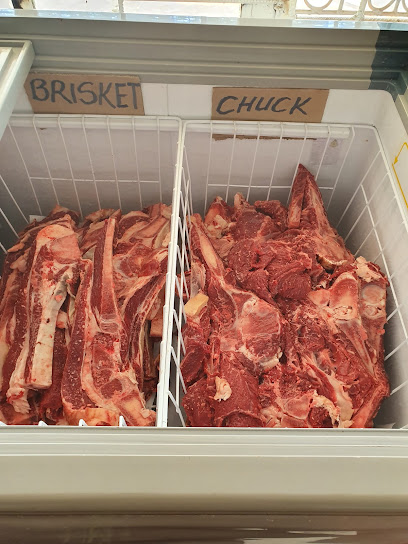
Royal Twenty Four
Discover authentic Zambian flavors blended with international cuisine at Royal Twenty Four in Ndola.

Minakshi sarma
Experience authentic Zambian cuisine at Minakshi Sarma in Ndola - a perfect blend of tradition and flavor awaits you.

Imilile Restaurant
Experience the essence of Zambia at Imilile Restaurant—your destination for authentic African flavors in Ndola.
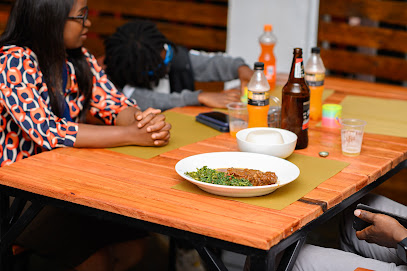
Markets, malls and hidden boutiques
Malak supermarket
Explore Malak Supermarket in Ndola: A treasure trove of local and international grocery items at great prices.
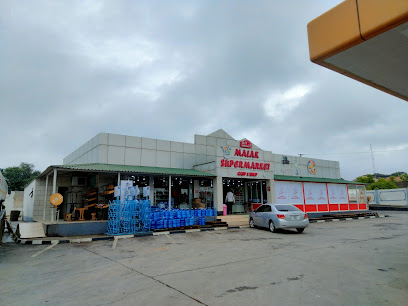
PEP STORES KANSENSHI
Explore budget-friendly fashion at PEP Stores Kansenshi, where trendy styles and affordability meet in the heart of Ndola, Zambia.
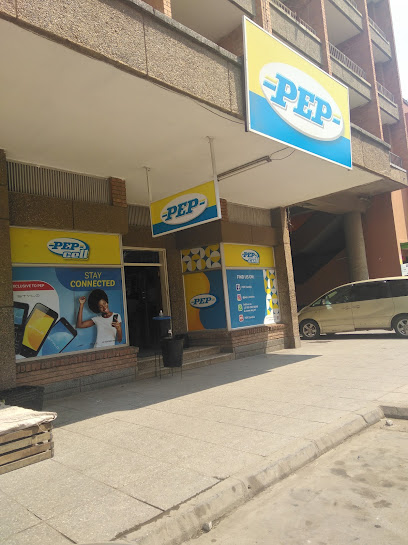
Kwatu Limited
Explore Kwatu Limited in Ndola for an authentic shopping experience filled with local treasures and everyday essentials.

Kwedu’s Closet!
Explore Kwedu’s Closet in Ndola for a unique blend of traditional and contemporary fashion that celebrates Zambian culture.

Chinese shops
Experience the vibrant blend of culture and commerce at the Chinese shops in Ndola, a must-visit for unique finds and authentic flavors.

Seersas boutique and beauty parlour
Discover unique fashion and beauty treatments at Seersas Boutique and Beauty Parlour in Ndola, where local style meets personalized service.
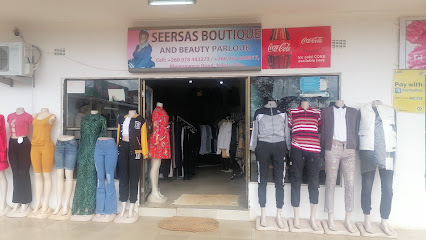
Tanaka's Closet
Explore the vibrant styles of Zambia at Tanaka's Closet, Ndola's premier boutique for local fashion and unique accessories.

Ekrain hijabstore
Shop at Ekrain Hijabstore for the finest selection of hijabs and modest women's clothing in Ndola, blending tradition with contemporary style.

Urban Thrift ZM
Discover unique fashion finds at Urban Thrift ZM in Ndola, where affordable clothing meets local style.

Lasmidas Trading
Explore the vibrant offerings at Lasmidas Trading, a unique general store in Ndola, Zambia, perfect for a local shopping experience.

Essential bars & hidden hideouts
Five Star Pub
Discover Ndola's nightlife at Five Star Pub – a vibrant bar offering a wide selection of drinks and a lively atmosphere perfect for socializing.
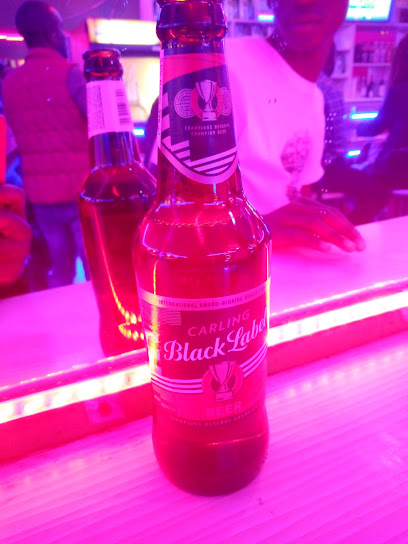
Bank Of Zambia Social Club
Experience the lively atmosphere of the Bank of Zambia Social Club, Ndola's top sports bar for great food, drinks, and live sports.
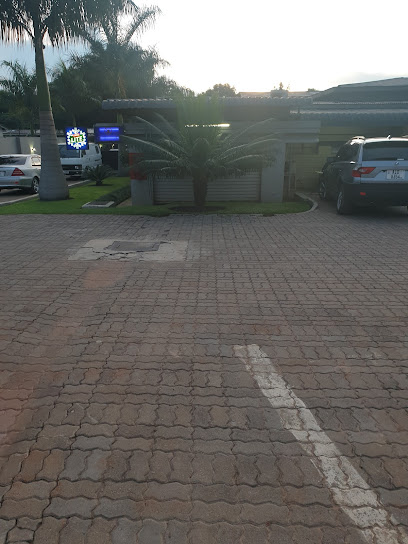
Papillons Grill House
Experience the rich flavors of grilled cuisine at Papillons Grill House in Ndola, a must-visit for food lovers seeking a memorable dining adventure.
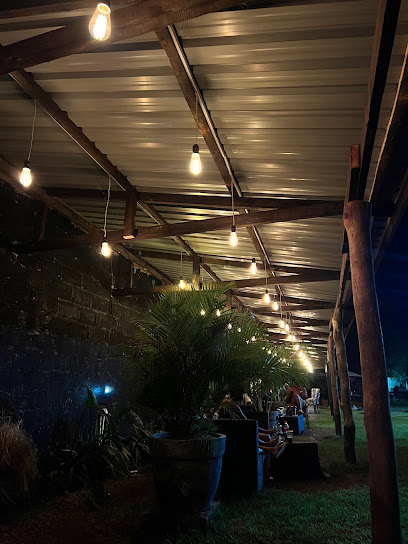
Muchis
Experience vibrant nightlife at Muchis, a bar in Ndola renowned for cool drinks and delicious braai'd fish, blending local culture and cuisine.
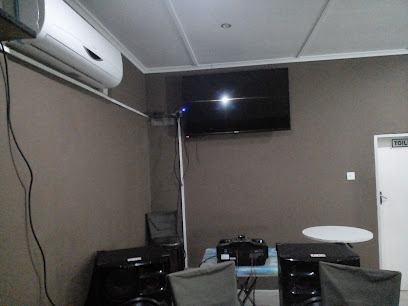
The Curve
Explore The Curve in Ndola for an authentic grill experience, offering a taste of local flavors in a welcoming atmosphere.
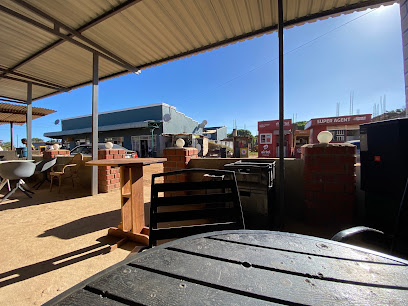
Ndondo's Pub
Discover Ndondo's Pub in Ndola, a lively bar where locals and tourists gather for drinks, music, and unforgettable experiences.
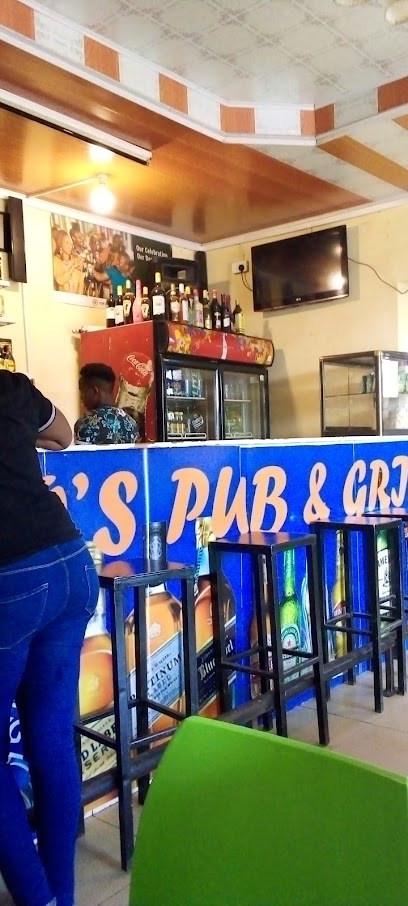
Eleven 45
Experience the vibrant flavors of Ndola at Eleven 45, an inviting grill restaurant offering delicious local cuisine in a lively atmosphere.
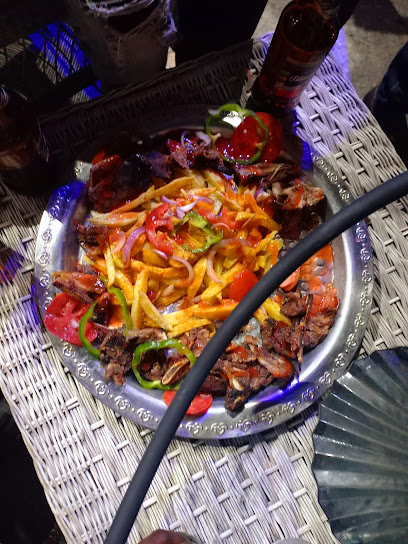
Provost
Discover the lively atmosphere at Provost Bar in Ndola, where locals and tourists unite for great drinks and memorable nights.

Chemwa lodge
Discover Chemwa Lodge in Ndola – a cozy bar offering a taste of Zambian hospitality, local brews, and a vibrant atmosphere perfect for relaxation.
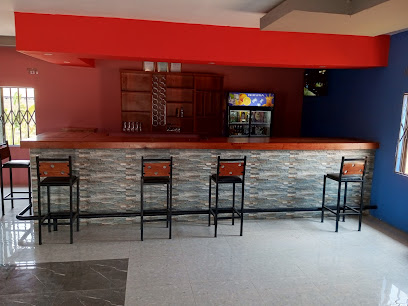
MeCo Bar
Discover Ndola's nightlife at MeCo Bar, a vibrant spot for locals and tourists with a diverse drink selection and inviting atmosphere.

Local Phrases
-
- HelloMuli bwanji
[moo-lee bwan-jee] - GoodbyeBwino bwino
[bwee-noh bwee-noh] - YesEe
[eh] - NoAy
[ah-ee] - Please/You're welcomeChonde
[chon-deh] - Thank youZikomo
[zee-koh-moh] - Excuse me/SorryPepani
[peh-pah-nee] - How are you?Muli bwanji?
[moo-lee bwan-jee?] - Fine. And you?Bwino. Iwe?
[bwee-noh. ee-weh?] - Do you speak English?Mukulankhula Chingerezi?
[moo-koo-lahn-koo-lah chin-geh-reh-zee?] - I don't understandSindikudziwa
[seen-dee-koo-zee-wah]
- HelloMuli bwanji
-
- I'd like to see the menu, pleaseNdikufuna kuona menu, chonde
[n-dee-koo-foo-nah kwoh-nah meh-noo, chon-deh] - I don't eat meatSindidya nyama
[seen-dee-dyah nyah-mah] - Cheers!Zokoma!
[zoh-koh-mah] - I would like to pay, pleaseNdikufuna kugulitsa, chonde
[n-dee-koo-foo-nah koo-goo-lee-tsah, chon-deh]
- I'd like to see the menu, pleaseNdikufuna kuona menu, chonde
-
- Help!Chilimbikitso!
[chee-leem-bee-kee-tsoh!] - Go away!Perekani!
[peh-reh-kah-nee!] - Call the Police!Pindani Police!
[peen-dah-nee poh-lee-ceh!] - Call a doctor!Pindani dokotala!
[peen-dah-nee doh-koh-tah-lah!] - I'm lostNdimafuna
[ndeem-ah-foo-nah] - I'm illNdimachitika
[ndeem-ah-chee-tee-kah]
- Help!Chilimbikitso!
-
- I'd like to buy...Ndikufuna kugula...
[n-dee-koo-foo-nah koo-goo-lah...] - I'm just lookingNdinakonda kukonza
[nee-nah-kohn-dah koo-kohn-zah] - How much is it?Ndi ndalama zingati?
[nee ndah-lah-mah zin-gah-tee?] - That's too expensiveIzi ndizachilendo kwambiri
[ee-zee ndee-zah-chi-len-doh kwahm-bee-ree] - Can you lower the price?Mukhoza kuchotsa tsambalo?
[moo-koh-zah koo-choh-tsah tsahm-bah-loh?]
- I'd like to buy...Ndikufuna kugula...
-
- What time is it?Ndi nthawi yomwe?
[nee n-tah-wee yoh-mweh?] - It's one o'clockNdi nthawi yamodzi
[nee n-tah-wee yah-moh-dzee] - Half past (10)Ndi nthawi yayikumi ndi mtengo
[nee n-tah-wee yah-yee-koo-mee ndee m-ten-goh] - MorningUsiku
[oo-see-koo] - AfternoonMawa
[mah-wah] - EveningM'mawa
[m-mah-wah] - YesterdayNtchitozi
[nt-chee-toh-zee] - TodayLero
[leh-roh] - TomorrowMawa
[mah-wah] - 1Mosi
[moh-see] - 2Ziri
[zee-ree] - 3Tatu
[tah-too] - 4Nai
[nah-ee] - 5Sanu
[sah-noo] - 6Zi
[zee] - 7Zana
[zah-nah] - 8Za
[zah] - 9Pala
[pah-lah] - 10Kumi
[koo-mee]
- What time is it?Ndi nthawi yomwe?
-
- Where's a/the...?Ku zonse...
[koo zohn-seh...] - What's the address?Adilesi yomwe ndi?
[ah-dee-leh-see yoh-mweh ndee?] - Can you show me (on the map)?Mukhoza kundifufuza (pa mapha)?
[moo-koh-zah koon-dee-foo-foo-zah (pah mah-pah)?] - When's the next (bus)?Ndi nthawi yomweyo (bus)?
[nee n-tah-wee yoh-mweh-yoh (boos)?] - A ticket (to ....)Chikiti (ku ....)
[chee-kee-tee (koo ....)]
- Where's a/the...?Ku zonse...
History of Kansenshi
-
Before the arrival of European settlers, the area now known as Kansenshi was inhabited by various indigenous communities, including the Bemba and Ngoni peoples. These groups engaged in agriculture, hunting, and trade, fostering a rich cultural tapestry that laid the groundwork for the region's social structure.
-
The late 19th century brought significant changes to Kansenshi and the broader Ndola area with the arrival of European colonizers. The discovery of copper in the Copperbelt region led to the establishment of mining operations, drastically altering the landscape and demographics of Kansenshi as it became more integrated into the colonial economy.
-
In the early 20th century, Kansenshi and Ndola experienced a boom due to the copper mining industry. The establishment of mining companies attracted a diverse workforce from various regions, including the mining towns that sprang up around Ndola. This influx of people contributed to the multicultural fabric of Kansenshi, blending different traditions and practices.
-
Following Zambia's independence in 1964, Kansenshi underwent significant socio-economic changes as the government took control of the mining industry. The nationalization of mines aimed to redistribute wealth and improve living conditions for Zambians, impacting the local economy and community dynamics in Kansenshi.
-
In recent decades, Kansenshi has embraced modernization while maintaining its cultural heritage. The community celebrates various traditional festivals and events that showcase local music, dance, and art. This blend of old and new reflects the resilience of the residents and their commitment to preserving their identity in an ever-changing world.
Kansenshi Essentials
-
Kansenshi is located in Ndola, Zambia, and is accessible from other neighborhoods via various modes of transport. Taxis and ride-sharing services are readily available in Ndola, making it easy to reach Kansenshi from downtown Ndola or other neighborhoods like Ndola Central or Chifubu. Public minibuses, known locally as 'kabanana', also operate routes to Kansenshi, though it's essential to confirm your destination before boarding.
-
Kansenshi is a walkable neighborhood, and many attractions can be accessed on foot. Public transport options include minibuses and taxis, which are both affordable and frequent. Bicycles can be rented from local shops, providing an eco-friendly way to explore the area. However, it is advisable to avoid driving due to the chaotic traffic conditions.
-
Kansenshi is relatively safe for tourists, but caution is advised. While most areas are fine to explore, avoid walking alone at night, particularly in poorly lit spots. Areas near the bus stations can sometimes attract petty crime, such as pickpocketing. Always keep your belongings secure and be aware of your surroundings.
-
In case of an emergency, dial 999 for police assistance and 992 for medical emergencies. Hospitals and clinics are available in Ndola, with the Ndola Central Hospital being the most prominent. Ensure you have travel insurance that covers medical emergencies and keep a list of emergency contacts handy.
-
Fashion: Do wear modest clothing, especially when visiting religious sites. Avoid overly revealing attire. Religion: Do be respectful during religious ceremonies and ask for permission before taking photos. Public Transport: Do give up your seat for elderly passengers; don't eat or drink on public transport. Greetings: Do greet with a handshake, and a friendly smile is always appreciated. Eating & Drinking: Do try local dishes and be gracious when offered food; don't waste food or refuse hospitality outright.
-
To experience Kansenshi like a local, visit the local markets for fresh produce and traditional Zambian dishes. Engage in conversations with locals, as they are often proud to share their culture and stories. Don't miss the chance to participate in community events if they coincide with your visit, as they provide a glimpse into everyday life in Kansenshi.
Nearby Cities to Kansenshi
-
Things To Do in Kitwe
-
Things To Do in Kabwe
-
Things To Do in Solwezi
-
Things To Do in Lusaka
-
Things To Do in Kariba
-
Things To Do in Kasama
-
Things To Do in Chipata
-
Things To Do in Chinhoyi
-
Things To Do in Lilongwe
-
Things To Do in Harare
-
Things To Do in Mzuzu
-
Things To Do in Livingstone
-
Things To Do in Victoria Falls
-
Things To Do in Nkhata Bay
-
Things To Do in Salima





